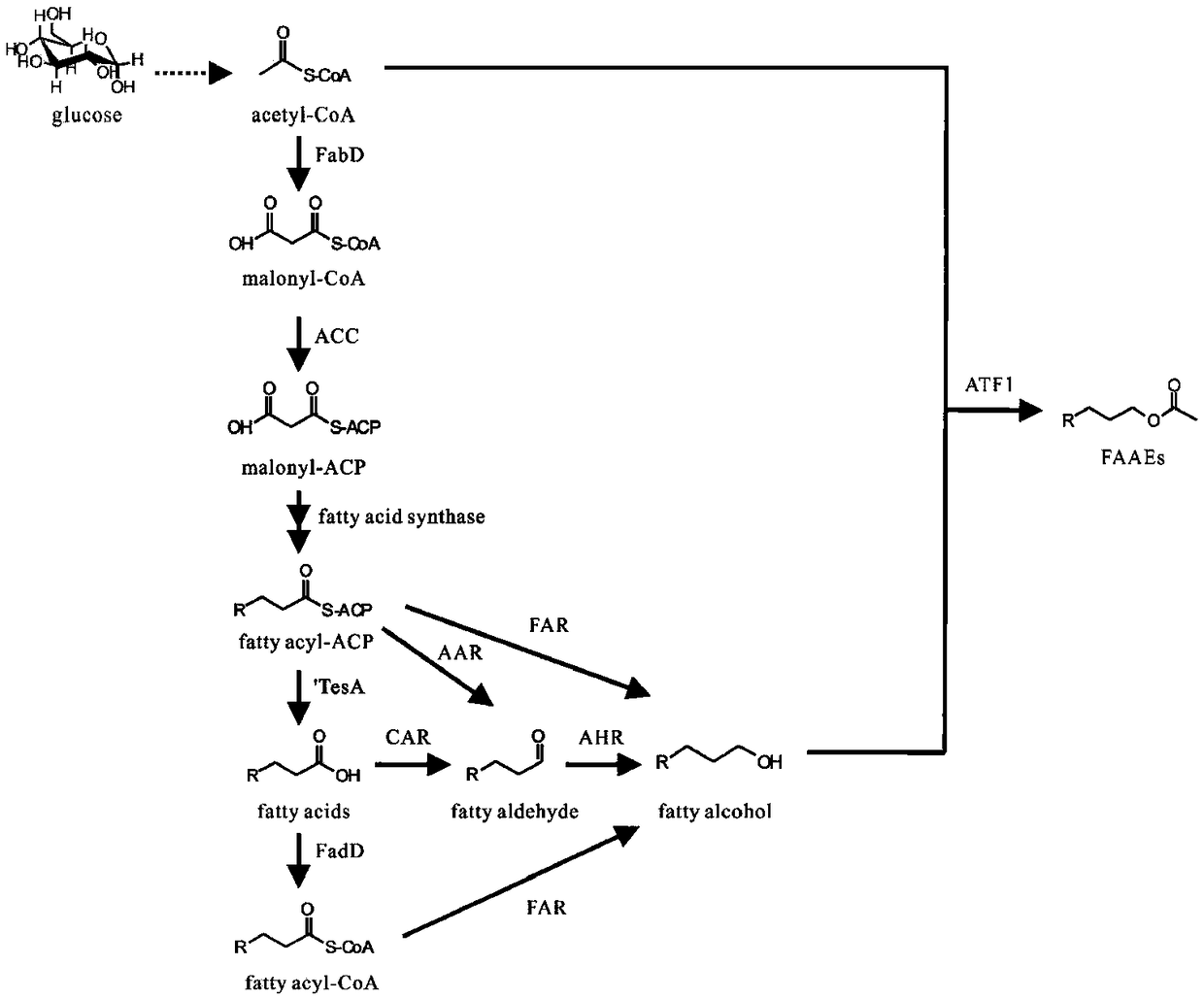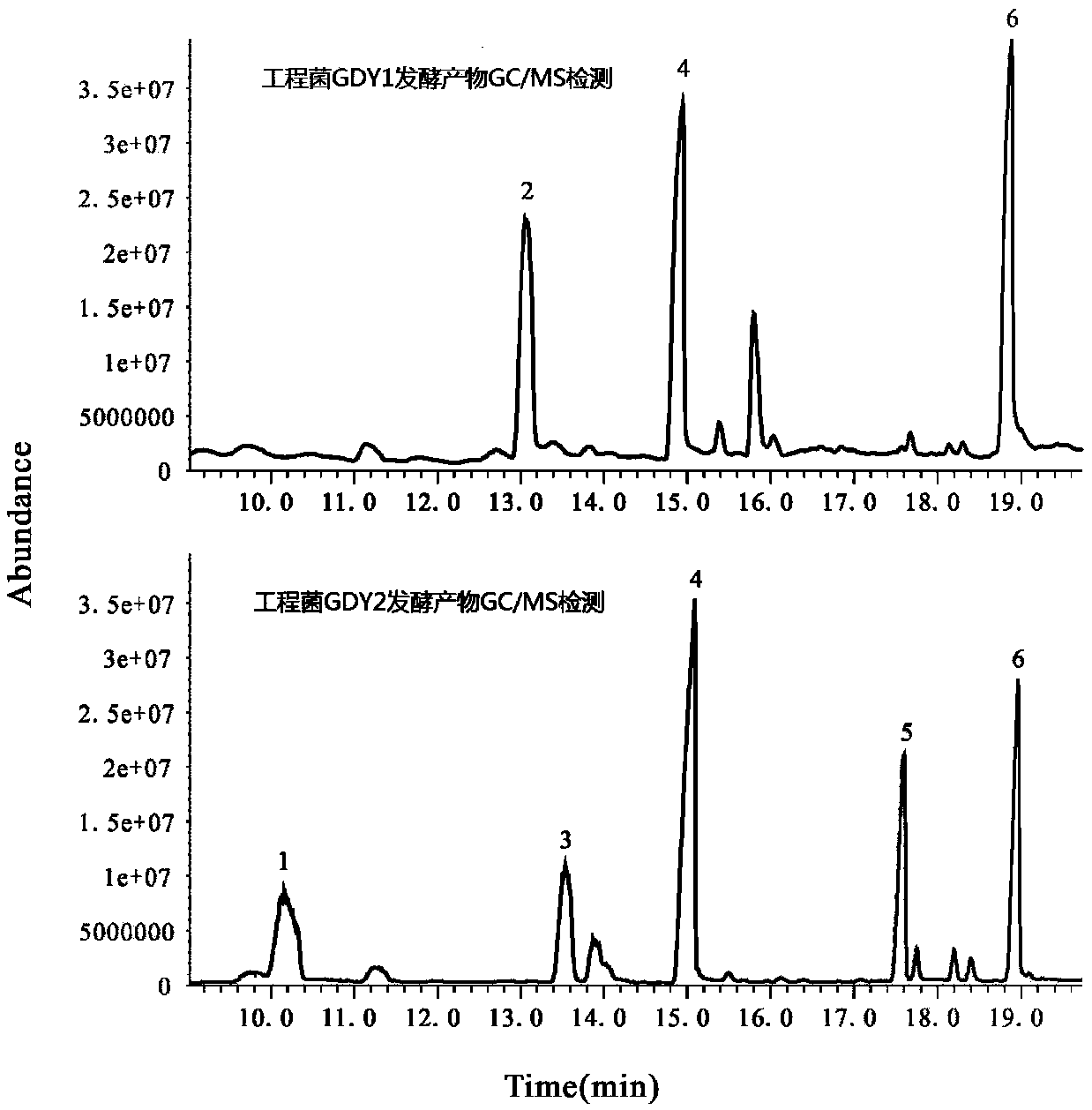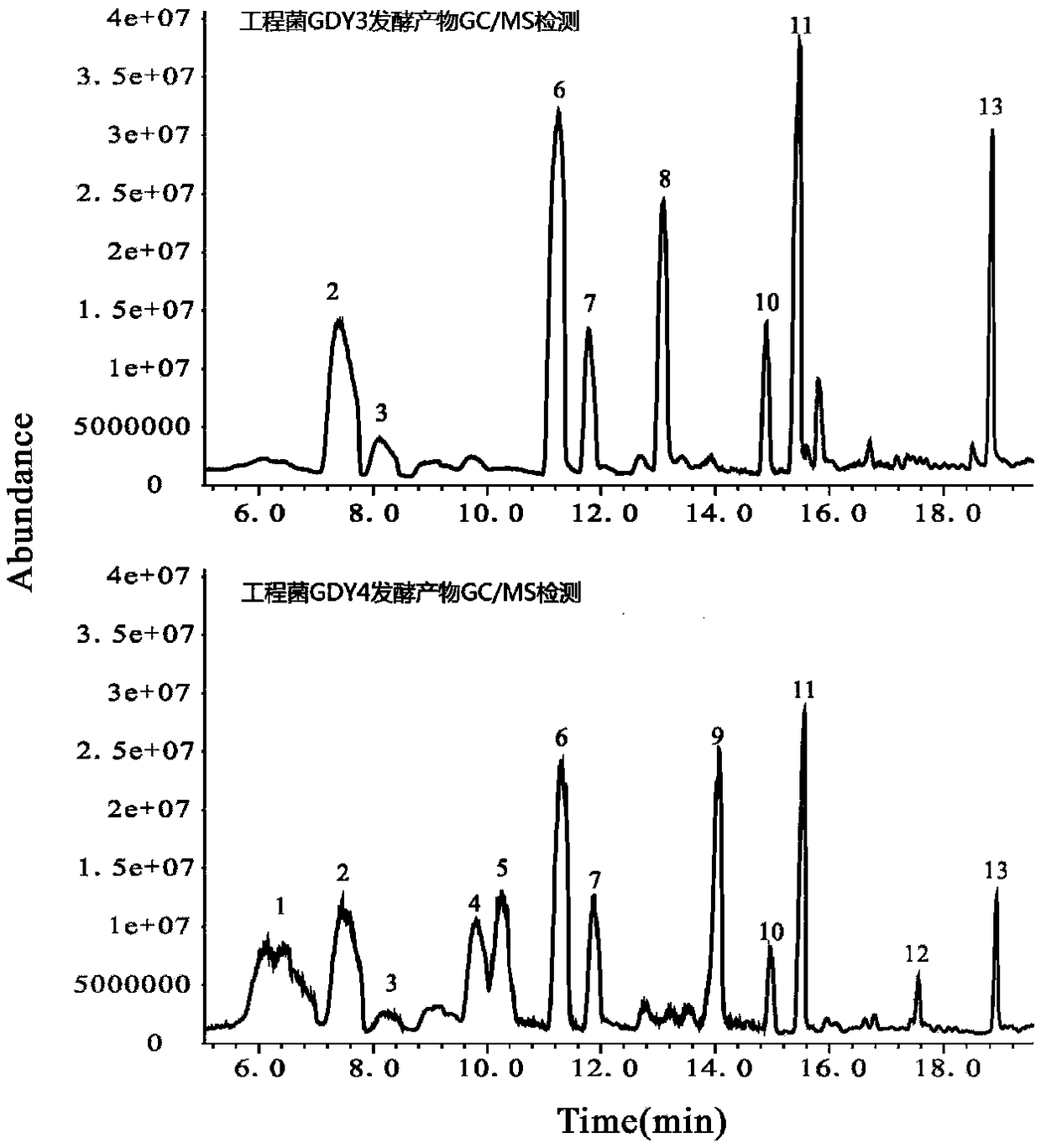Method for synthesizing fatty alcohol acetates base on fatty acids in microorganisms in vivo
A technology for fatty acid synthesis and alcohol acetate, applied in the field of microbial genetic engineering, can solve the problem of high synthesis cost, achieve the effects of fast growth, mature genetic manipulation technology and reduced release
- Summary
- Abstract
- Description
- Claims
- Application Information
AI Technical Summary
Problems solved by technology
Method used
Image
Examples
Embodiment 1
[0023] Embodiment 1 is based on fatty acyl ACP as the precursor molecule to produce fatty alcohol acetate Escherichia coli engineering bacteria ( figure 1 shown)
[0024] Construction of Fatty Alcohol-Producing Engineering Bacteria
[0025] 1. Utilize primers AAR-XbaI (GTATCTAGAAAGAGGAGATATAATGTTCGGTCTTATCGGTCATCTC) and AAR-SpeI-BamHI (TGTGGATCCACTAGTTCAAATTGCCAATGCCAAGG) to PCR amplify the AAR gene from Synechococcuselongates bacteria, then insert the amplified fragment into pET28a (+) with XbaI and BamHI to obtain vector pDY01. The AHR gene from Escherichia coli was amplified by PCR using primers AHR-XbaI (ATATCTAGAAAGAGGAGATATAATGTCGATGATAAAAAAGCTATGCCG) and AHR-SpeI-BamHI (GTAGGATCCACTAGTTCAAAAATCGGCTTTCAACACCAC), and inserted into pET28a(+) using XbaI and BamHI to obtain vector pDY02. The AAR expression cassette was obtained by double-digesting pDY01 with XbaI and XhoI, and inserted into the vector pDY02 double-digested with SpeI and XhoI to obtain the recombinant vector p...
Embodiment 2
[0030] Embodiment 2 is based on the construction of fatty acid as a precursor molecule to produce fatty alcohol acetate Escherichia coli engineering bacteria ( figure 1 shown)
[0031] Construction of Fatty Alcohol-Producing Engineering Bacteria
[0032] 1. Utilize primers CAR-XbaI (ATATCTAGAAAGAGGAGATATAATGTCGCCAATCACGCGTGA) and CAR-SpeI-BamHI (AGAGGATCCACTAGTTCAGAGCAGGCCGAGTAGGC) to PCR amplify the CAR gene from Mycobacterium marinum bacteria, and then insert the amplified fragment into pET28a (+) with XbaI and BamHI to obtain vector pDY06. The 'TesA gene from Escherichia coli was amplified by PCR with primers 'TesA-SacI (AGATGAGCTCATGGCGGACACGTTATTGATTCTGG) and 'TesA-SpeI (TGTACTAGTTTATGAGTCATGATTTACTAAAGGCTGC), and then the amplified fragment was double-digested with SacI and SpeI and inserted into pBBR1MCS1 to obtain vector pDY07. The AHR gene from Escherichia coli was amplified by PCR using primers AHR-BamHI (ACTGGATCCAAGAAGGAGATATAATGTCGATGATAAAAAAGCTATGCCG) and AHR-Xh...
Embodiment 3
[0037] Example 3 Construction based on fatty acyl-ACP and fatty acyl-CoA as precursor molecules to produce fatty alcohol acetate Escherichia coli engineering bacteria ( figure 1 shown)
[0038] Construction of Fatty Alcohol-Producing Engineering Bacteria
[0039] 1. Use primers FAR-XbaI (CAATCTAGAAAGAGGAGATATAATGGCAATACAGCAGGTACATCAC) and FAR-SpeI-BamHI (CGAGGATCCACTAGTTCAGGCAGCTTTTTTGCGCT) to PCR amplify the FAR gene from M.aquaolei bacteria, then insert the amplified fragment into pET28a(+) with XbaI and BamHI to obtain the vector pDY11.
[0040] 2. The recombinant vector pDY11 was introduced into Escherichia coli GM1655 to obtain GDY5 engineering bacteria. The engineering bacterium realizes the high expression of the FAR gene. The FAR enzyme was expressed to catalyze the direct reduction of fatty acid synthesis intermediates acyl-ACP and acyl-CoA to fatty alcohols.
[0041] Construction of Engineering Bacteria Producing Fatty Alcohol Acetate
[0042] 1. The vector pDY1...
PUM
 Login to View More
Login to View More Abstract
Description
Claims
Application Information
 Login to View More
Login to View More - R&D
- Intellectual Property
- Life Sciences
- Materials
- Tech Scout
- Unparalleled Data Quality
- Higher Quality Content
- 60% Fewer Hallucinations
Browse by: Latest US Patents, China's latest patents, Technical Efficacy Thesaurus, Application Domain, Technology Topic, Popular Technical Reports.
© 2025 PatSnap. All rights reserved.Legal|Privacy policy|Modern Slavery Act Transparency Statement|Sitemap|About US| Contact US: help@patsnap.com



